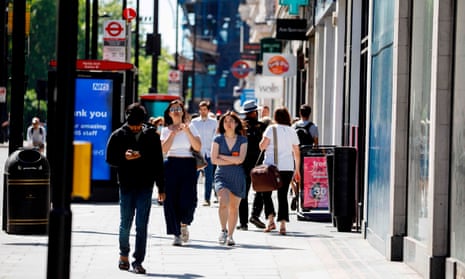Businesses have dramatically scaled back investment plans for the rest of the year in response to the uncertainty surrounding the future of the UK economy, according to a leading business survey.
The Institute of Directors (IoD) said its confidence tracker revealed the Covid-19 crisis had driven down investment intentions among its members for the next 12 months by 11 percentage points to a record low of -43%.
The monthly survey found investment and hiring intentions “plumbed new depths” last month despite some easing of the lockdown and an improvement in the overall confidence business owners have in the economy, which increased from -69% in April to -60%.
Tej Parikh, the IoD’s chief economist, said firms were more optimistic about their own recovery than the broader economic situation, though it was too early to say whether the small and medium-sized businesses that make up the bulk of the IoD’s membership had turned a corner.
He warned ministers that businesses would need support through the recovery period or many would go to the wall.
“The government must pull out the stops this summer. If it holds back too much ammo for later in the year, firms’ recoveries will be slowed,” he said.
Officials at the Treasury and Bank of England are concerned that businesses will delay spending on new plant and machinery, IT systems and upgrades to ageing properties while they cope with the coronavirus crisis, jeopardising the recovery.
Ministers have come under pressure to announce tax cuts and other incentives to spur extra spending by consumers and businesses to prevent the recession turning into a depression lasting several years.
Referring to the employment protection scheme that pays employees 80% of their wages if they cannot work, Parikh added: “When the furlough scheme ends, employment could take a hit. The government should help companies fill the gap by reducing the cost of hiring.
“With cash tight, smaller firms could also benefit from tax breaks to adjust to the new normal, while the debt businesses have built up will hold back the economy unless it’s addressed.”
The report followed analysis by the stockbroker Peel Hunt of the cancelled investment decisions of listed companies, which it estimates has reached £23bn.
Last month, the IoD reported that 51% in a poll of 720 company directors said their growing debt obligations were having a negative impact on their recovery, while 57% said it would hold back their investment plans over the next two years.
